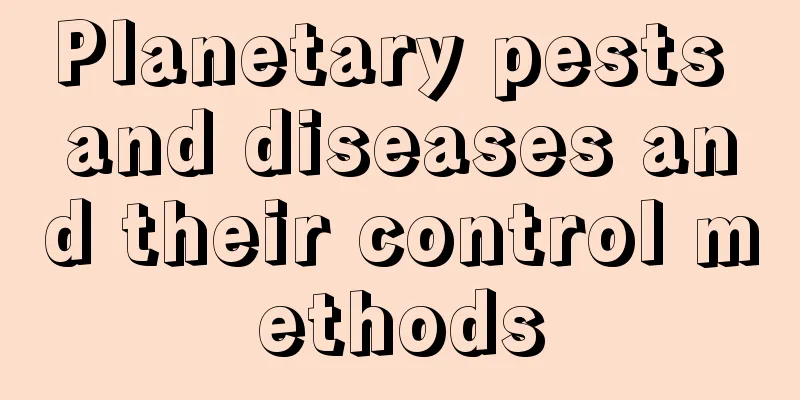How to grow potatoes to get high yield?

|
Potatoes have become a favorite crop for many farmers due to their rich nutritional value and wide range of uses. Compared to other vegetables, potatoes are harvested not from their branches and leaves, but from the underground tubers. In the growth cycle of potatoes, the early stage is mainly focused on the growth of the upper vines, while potatoes begin to form in the middle and late stages. So how can we grow potatoes to achieve high yields? 1. Deeply till the soil As an underground tuber crop, potatoes require a good soil environment, including loose, breathable and fertile soil. Before planting, the soil needs to be turned at least 20 cm deep. This helps improve the soil structure, promotes healthy growth of roots and tubers, and ensures there are enough nutrients in the soil. 2. Select seeds Choose virus-free potato seeds and make sure each piece has 2-3 eyes when cutting. For smaller potatoes, use the whole potato for seed, just slightly chopping off the tail. Doing so will help ensure uniform emergence and stronger growth of the seedlings, thus promoting full tuber development. 3. Apply base fertilizer Base fertilizer is essential for high potato yield. You can choose fermented organic fertilizers , such as pig manure, sheep manure, bean cake, etc., or compound fertilizers , calcium magnesium phosphorus, etc. When applying base fertilizer, first apply the organic fertilizer into the planting furrow, then sow potatoes, or apply it when turning the soil. If chemical fertilizers are used, they should be applied below the organic fertilizer or between two potato seeds , avoiding direct contact with the seeds to prevent sprout burn. 4. Pay attention to the sowing depth and spacing Planting depth is critical to potato development. Sowing too deep will affect germination and emergence time. Usually the sowing depth should be 5-7 cm. The row spacing of potatoes should be kept at 50-60 cm, and the distance between plants should be about 25 cm. Too dense or too sparse will affect the growth and yield of potatoes. 5. Cover the ground with plastic film after sowing When planting potatoes in spring, due to the low temperature, using mulch to cover the ground can increase the ground temperature and accelerate germination, thereby increasing the growing days and increasing yields. After all the potatoes have sprouted, as the temperature rises, you can remove the plastic film and allow the seedlings to grow normally. 6. Thinning and foliar fertilization After the potatoes emerge, select 1-2 strong seedlings to keep and remove the rest to reduce nutrient competition. During the tuber development stage, that is, the early stage of potato flowering, first pinch off the flower buds and tips, and then add nutrients to the leaves, such as potassium dihydrogen phosphate, brassinolide or trace elements, and choose to spray in the morning and evening. This is crucial for the enlargement of potato tubers and the increase of yield. The above are the precautions for high-yield potato cultivation. Mastering these techniques can significantly increase potato yields, so field management of sugarcane must be in place at ordinary times.
|
<<: When is the best time to water garlic with frozen water?
>>: How to grow konjac to achieve high yield?
Recommend
What is the flower language of peony?
The Flower Language of Peony The peony has a broa...
How to prune photinia
How to prune the branches of Photinia The photini...
Is the yield of grapefruit high? What is the yield per mu?
Is the grapefruit yield high? The yield of pomelo...
Can roses survive if they are cut in spring?
1. Soil Insertion 1. If you are planting it in th...
When is the best time to plant hydroponic daffodils?
Many friends like to grow a pot of daffodils at h...
How to take care of the Kalanchoe you just bought home (how to handle the Kalanchoe you just bought online)
The Kalanchoe that you just bought home, such as ...
What is the reason why the leaves of Jade Plant turn yellow and fall off?
Jade Plant is a succulent plant in the Portulacac...
Tomato planting method, tomato price
1. Planting method 1. Planting time: Tomatoes are...
How to grow pink palm to make it bloom
Flowering time of pink palm The flowering period ...
Cultivation methods and precautions of Aquilegia
1. Suitable potting soil When cultivating, use fl...
How to fertilize Dianthus chinensis
The need for fertilizer It can also grow when pla...
When can nasturtium be planted?
1. Planting time Nasturtium planting can be done ...
How to trim the maidenhair fern to look good? How long does it take for it to sprout after shaving?
1. How to trim beautifully 1. Prune old roots and...
Can ginseng help you run?
1. Can you run? Ginseng will not run, but it will...
What does the flowering of peacock arrowroot mean?
When does the peacock plant bloom? The flowering ...









